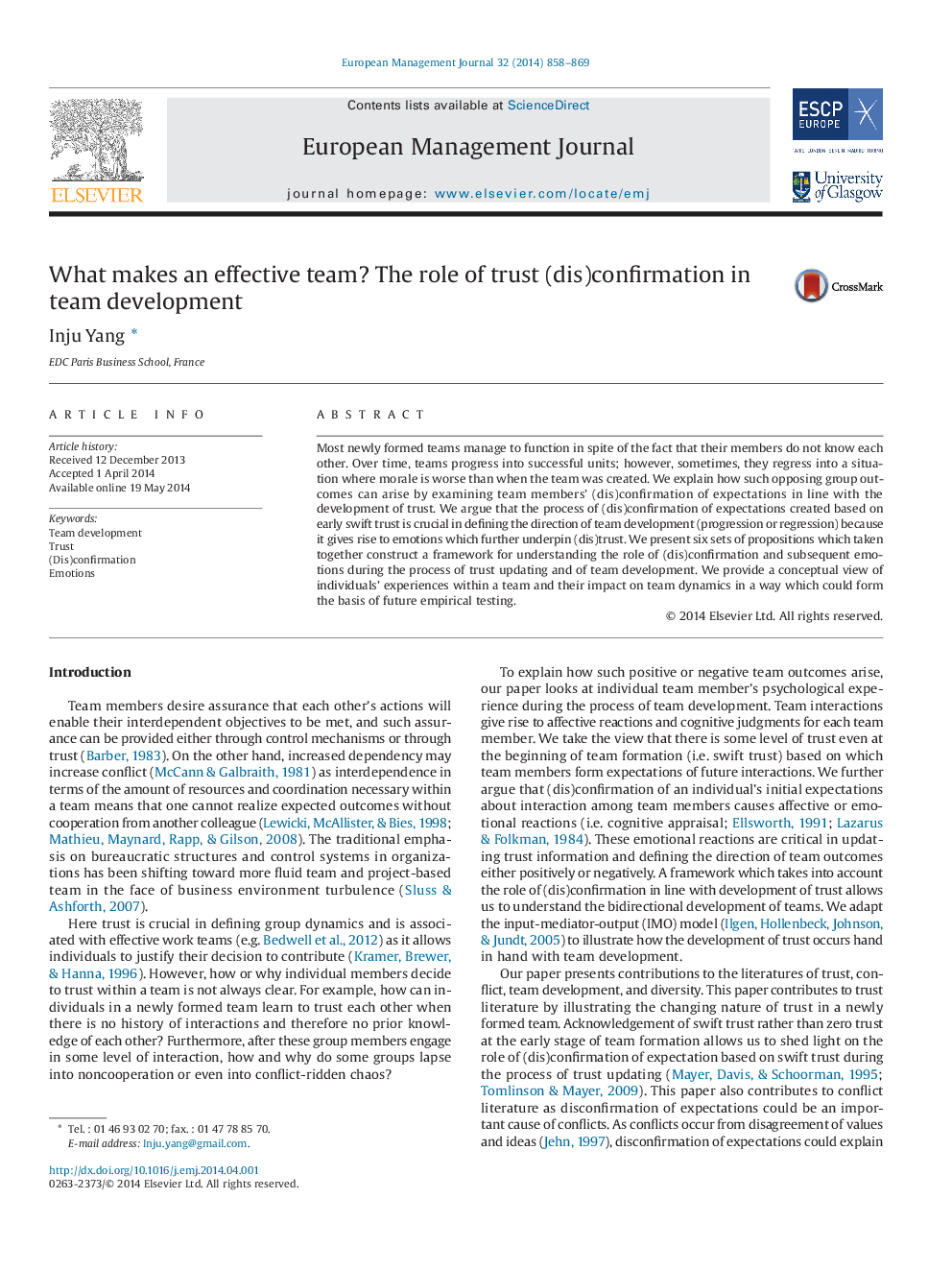| Article ID | Journal | Published Year | Pages | File Type |
|---|---|---|---|---|
| 1014921 | European Management Journal | 2014 | 12 Pages |
Most newly formed teams manage to function in spite of the fact that their members do not know each other. Over time, teams progress into successful units; however, sometimes, they regress into a situation where morale is worse than when the team was created. We explain how such opposing group outcomes can arise by examining team members’ (dis)confirmation of expectations in line with the development of trust. We argue that the process of (dis)confirmation of expectations created based on early swift trust is crucial in defining the direction of team development (progression or regression) because it gives rise to emotions which further underpin (dis)trust. We present six sets of propositions which taken together construct a framework for understanding the role of (dis)confirmation and subsequent emotions during the process of trust updating and of team development. We provide a conceptual view of individuals’ experiences within a team and their impact on team dynamics in a way which could form the basis of future empirical testing.
